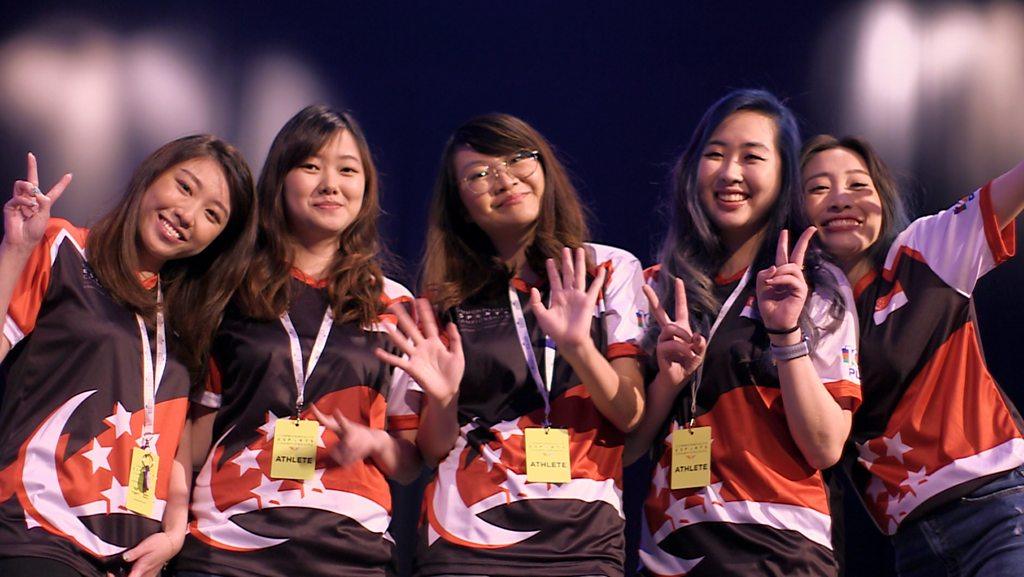Esports: Belfast Metropolitan College to offer foundation degree
- Published
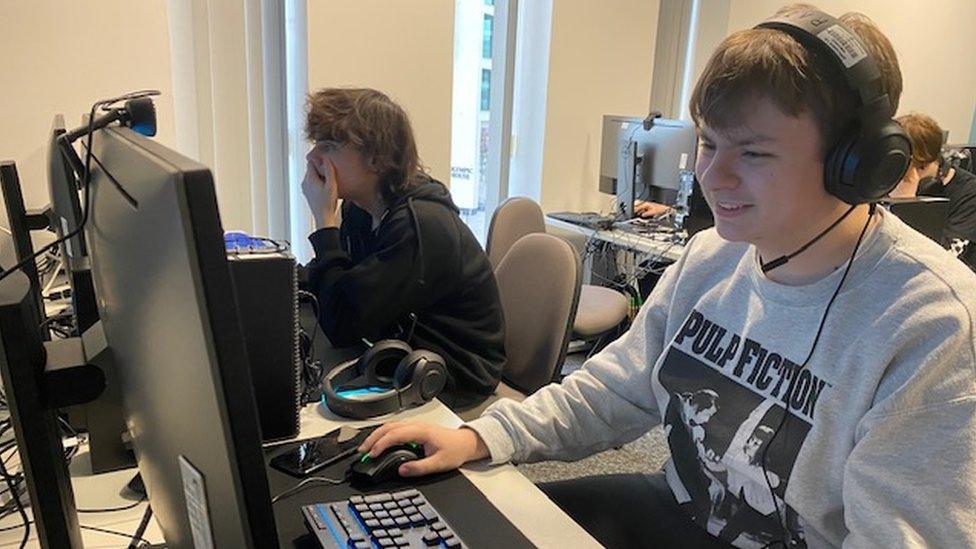
Josh Donnelly and Graham Norrie say there is a lot of learning in the course
Esports - or competitive gaming - is nothing new.
It was a pilot event at this year's Commonwealth Games and has risen in popularity in recent years.
But, for many, the idea of studying it at college may seem bizarre, and conjure up thoughts of teenagers holed up in their bedrooms drinking energy drinks and staring at screens.
However, Belfast Metropolitan College is launching a foundation degree in esports and hopes to dispel myths.
It follows on from the success of the A-level equivalent in esports which has been running at the college since 2020.
"People think that all we do is sit around playing games all day, it would be great if that were the case but it's not," said Graham Norrie, who was part of the first cohort.
"It's about learning and getting ready for the industry that's behind it."
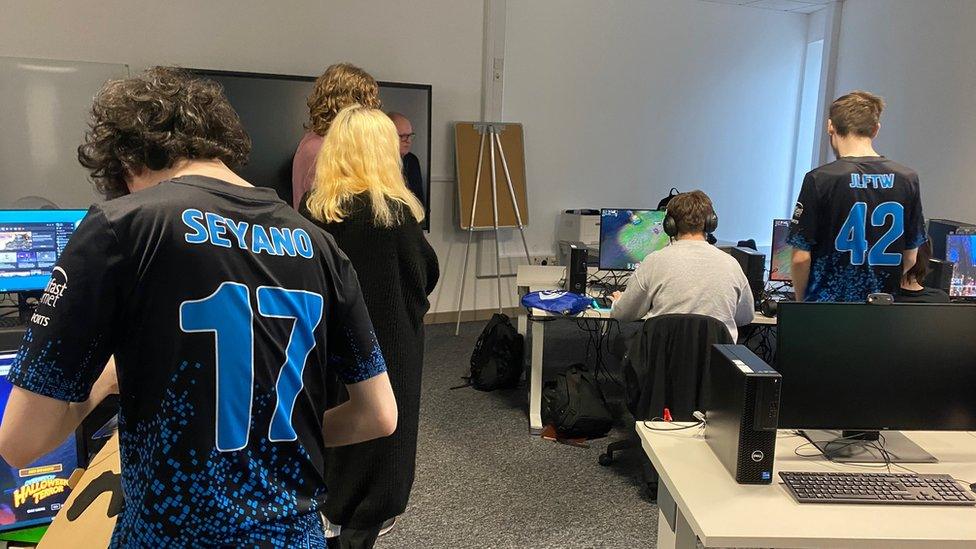
The course went from taking 20 students in its first year to 40 in the second
Esports, also known as electronic sports, is a competition between video game players involving a variety of games from football and basketball, to more fantasy-themed games.
"My parents were sceptical [about the course], as was I, but they understood that esports was something I was very passionate about and they wanted me to do something I enjoy," added Graham.
"Esports has just been a thing for my entire life, you ask any anyone in the country, my age and lower, they are playing games."
'Not just about being good at games'
Fellow student Josh Donnelly was unaware of the potential career opportunities available before he started the course.
"I could go into streaming or videoing events, which technically is not what you think of when you say a career in esports," the 19 year old told BBC News NI.
"It's not just about being good at games, there's a lot of learning, it's so in-depth and you actually learn."
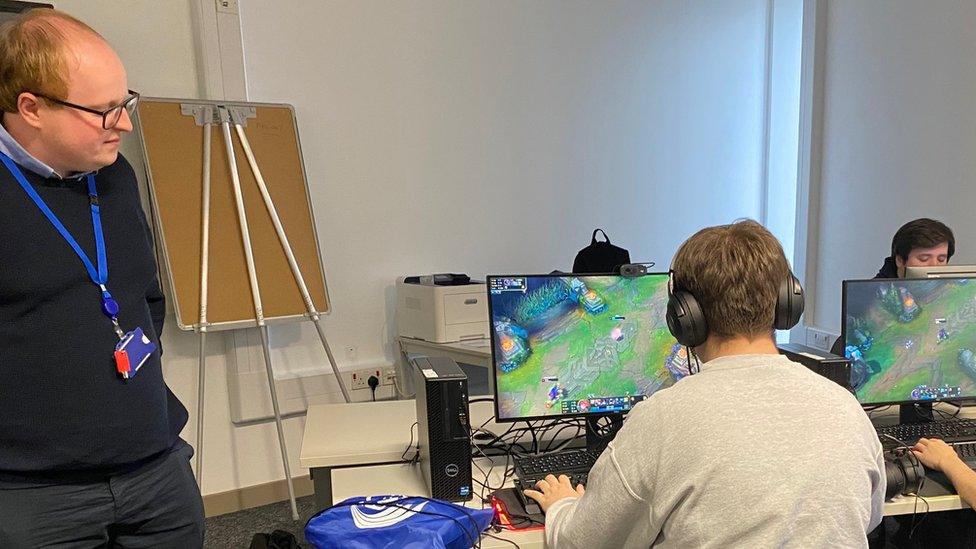
Michael Smyth co-ordinates the course at the college
Course co-ordinator Michael Smyth managed Northern Ireland's team at the Commonwealth Esports Championships in the summer.
He had been lecturing in computing when he raised the idea of starting a BTec in esports with management.
"I sort of said: 'Look there is definitely an increased demand for the skills out there as it is one of the fastest growing industries in the world'," he told BBC News NI.
"It was a case of wanting to jump on the train before we missed out on the opportunity to be the first in Northern Ireland to offer it."
The course went from taking 20 students in its first year to 40 in the second, but Michael admits there was some resistance from parents.
"It's always, 'what does this lead to?' and 'are they just sitting playing games for two years?'
"I just tell them it's a mixed bag of everything.
"They get taught everything in the curriculum but in a way that they enjoy."
He added: "We've had students go on to do different things. They've gone on to work for Netflix and broadcasting, obviously there is a lot of TV and films filmed round here.
"We've had ones go into coaching and management in sport, and in esports as well. We have even had one go on to be a professional boxer."
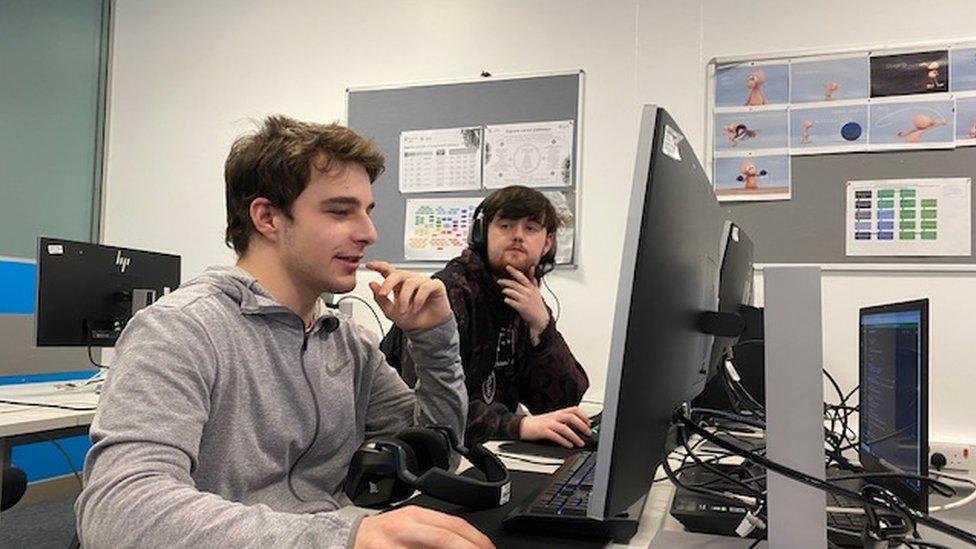
Chris Caves had been coaching an esports team, while Lewis Shields had been working in event promotion before joining the course
Chris Caves, 19, who had been coaching a semi-professional esports team for six months before staring the course, said the course is "just learning more traditional subjects, but in a way that focuses on the esports industry so it makes it more interesting because it's something that we're interested in".
"I mean there is even gym work, which is basically like PE, because health and wellbeing is so important, which my dad constantly jokes about."
Lewis Shields, 21, added that the course has been a real "eye opener" to the business world surrounding esports.
"There are aspects of business that I didn't even think would be part of it. I've learned so much about it and that's what I love."
Related topics
- Attribution
- Published21 September 2022
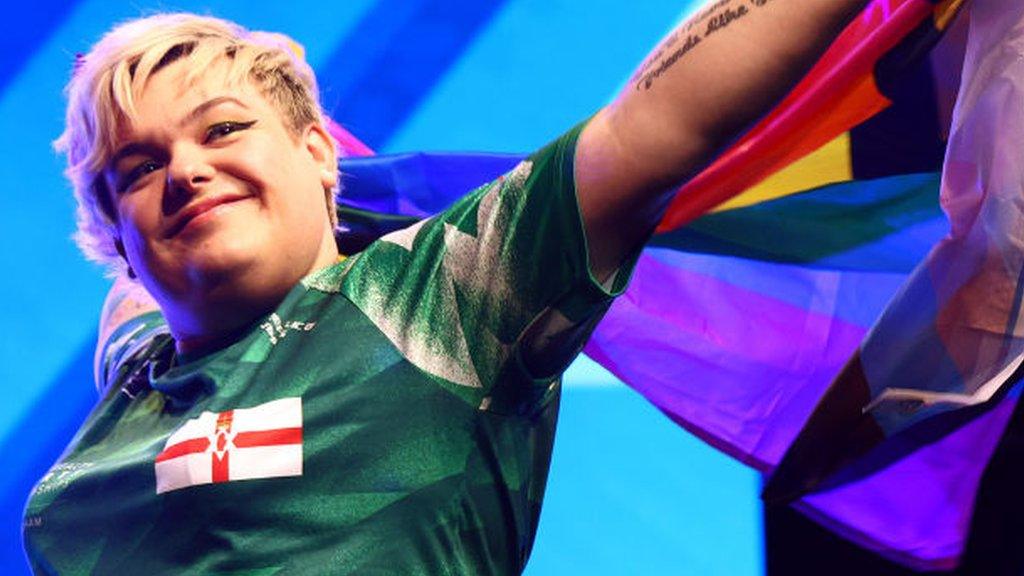
- Published4 August 2022
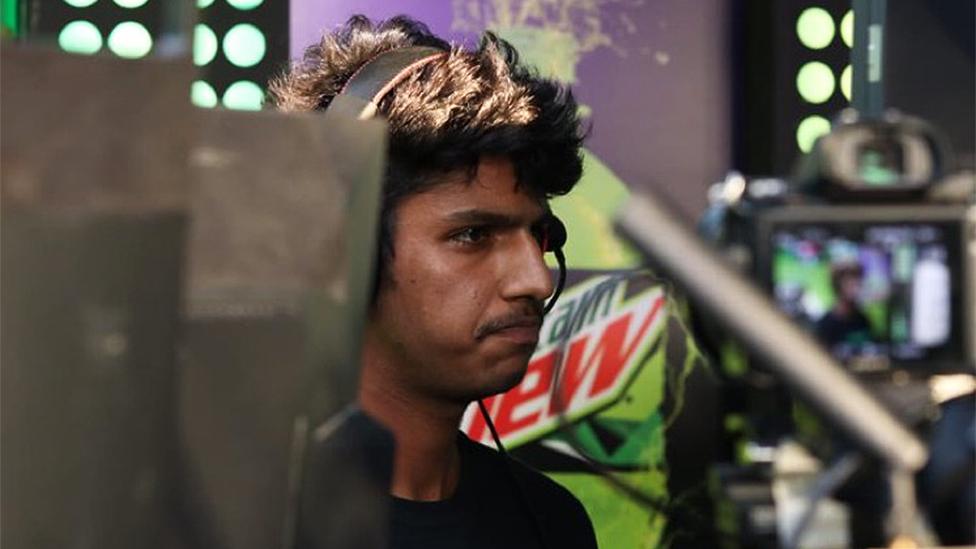
- Published11 August 2022
